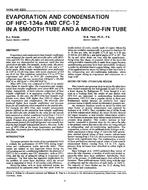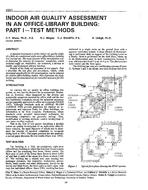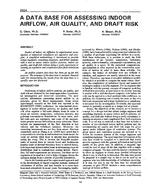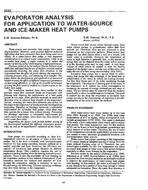-
-
Available Formats
- Options
- Availability
- Priced From ( in USD )
-
Available Formats
-
- Immediate download
- $16.00
- Add to Cart
Customers Who Bought This Also Bought
-

3500 -- A Linear Subgrid Cooling and Dehumidification Coi...
Priced From $16.00 -

3495 (RP-630) -- Evaporation and Condensation of HFC-134a...
Priced From $16.00 -

3501 -- Indoor Air Quality Assessment in an Office-Librar...
Priced From $16.00 -

3504 -- A Data Base for Assessing Indoor Airflow, Air Qua...
Priced From $16.00
About This Item
Full Description
Shows the development and application of numerical models to study the effect of different evaporator parameters on heat pump efficiency, as well as the possible advantages of using the flow-reversal method in a water-source or ice-maker heat pump. Concludes that periodic water flow reversals inside an evaporator with freezing help will improve the performance of a heat pump system in two ways. First, periodic reversals in water flow direction serve to enhance heat transfer in the evaporator. Second, reversing the water flow direction also delays ice blockage in the evaporator or totally prevents blockage from happening. Delaying ice blockage represents a substantial improvement for ice-maker heat pumps, since these may then operate for a longer time without deicing. Preventing ice blockage represents a substantial improvement for water-source heat pumps, since these may then operate at lower water flow rates. Suggestions for future work include further testing of the flow-reversal method for different evaporator geometries, as well as an experimental validation of the results.
KEYWORDS: evaporators, water heat pumps, ice heat pumps, heat pumps, reversing, heat flow, calculating, efficiency, performance, deicing, water flow, flow rate





